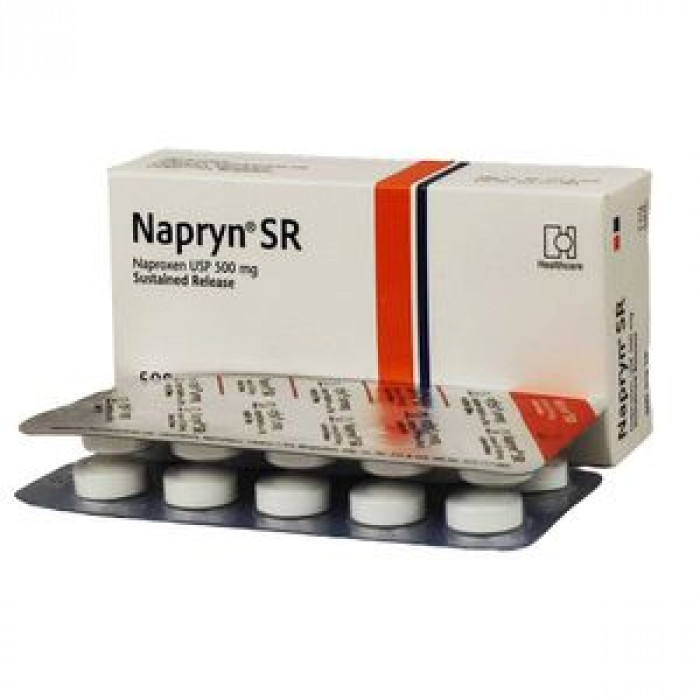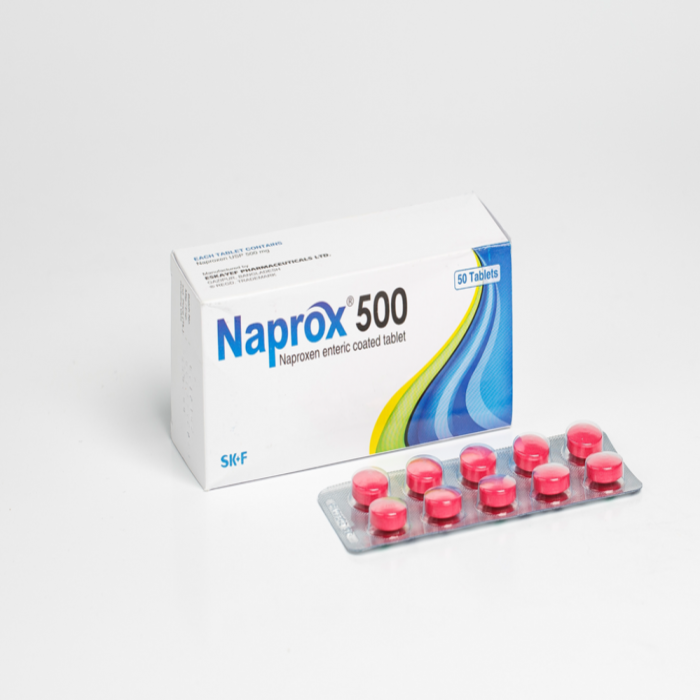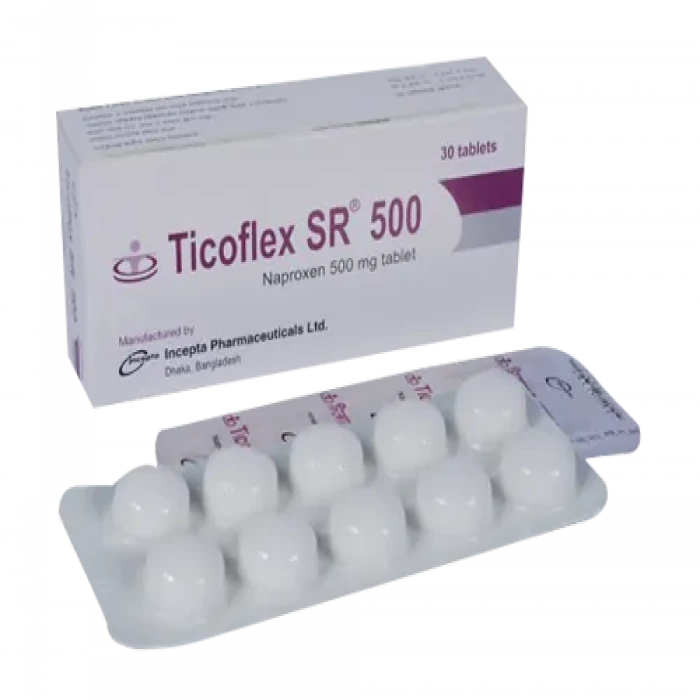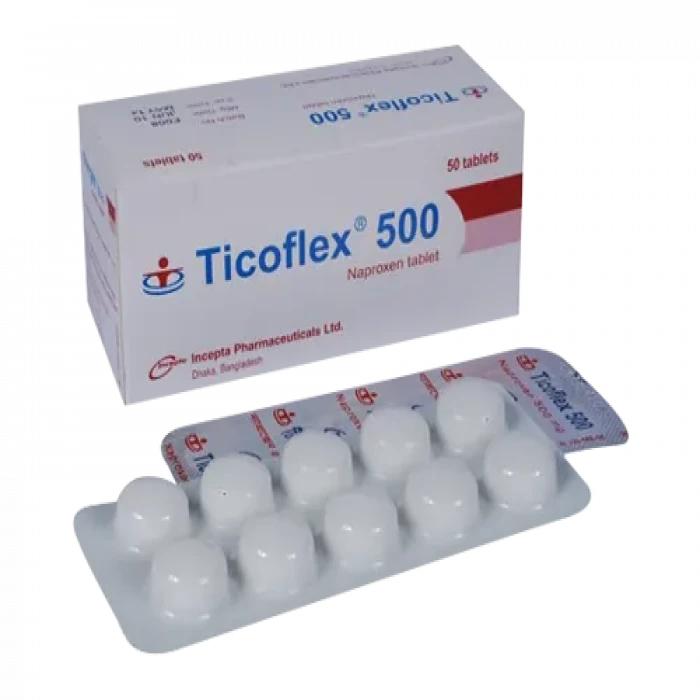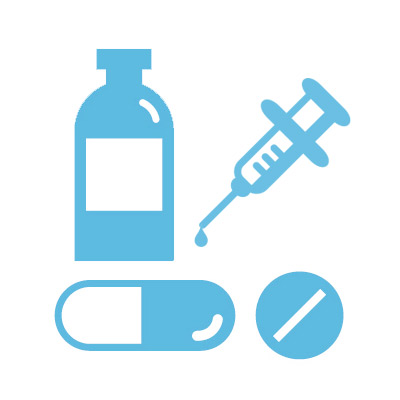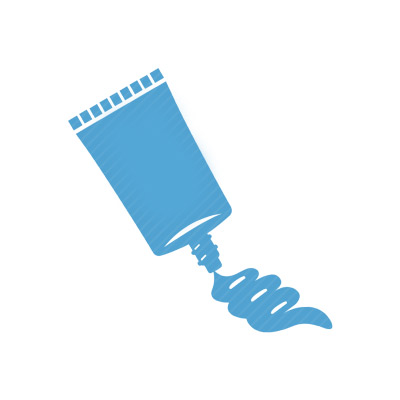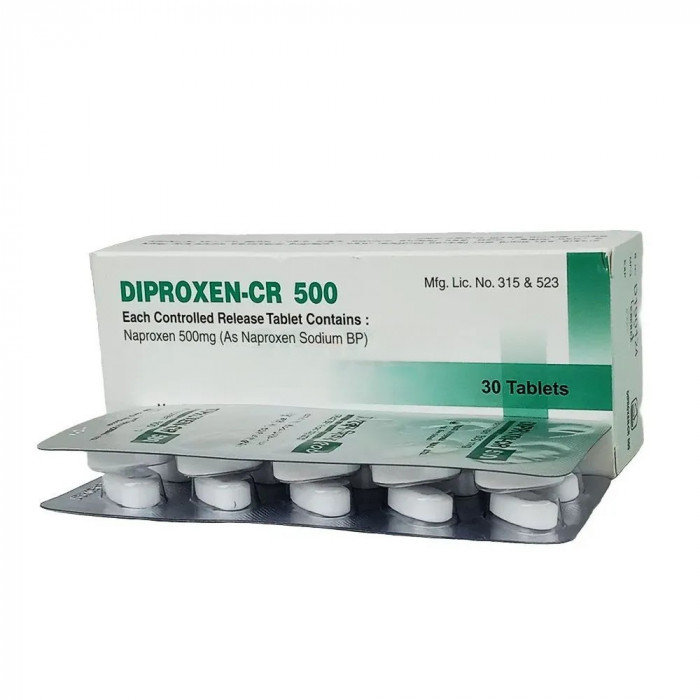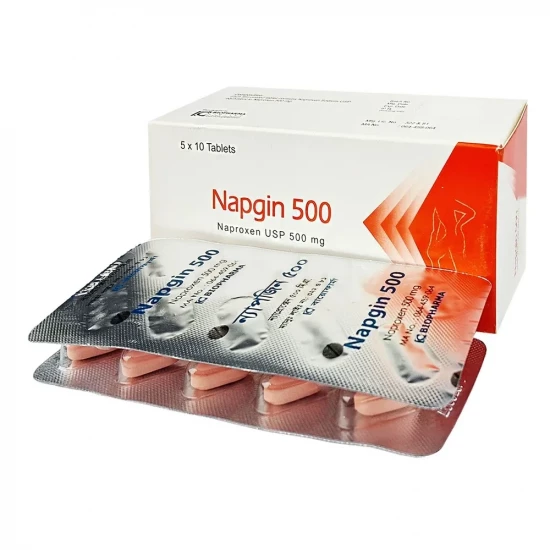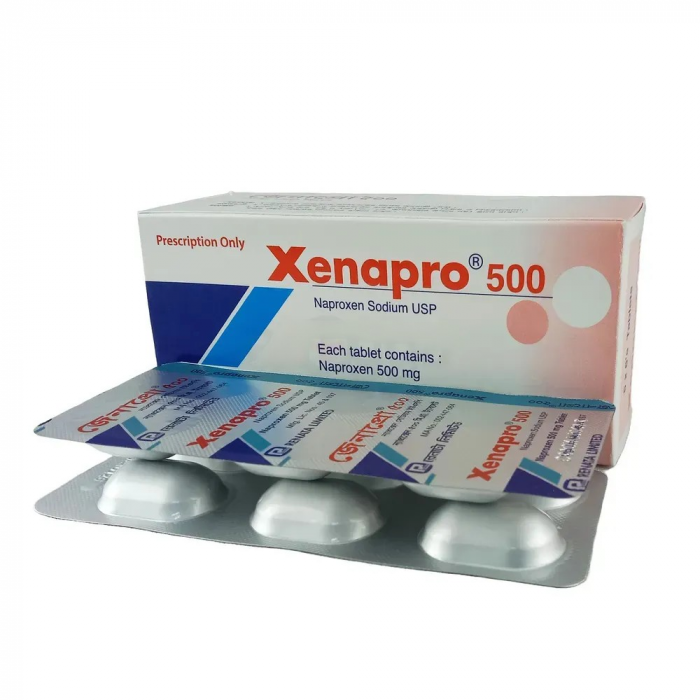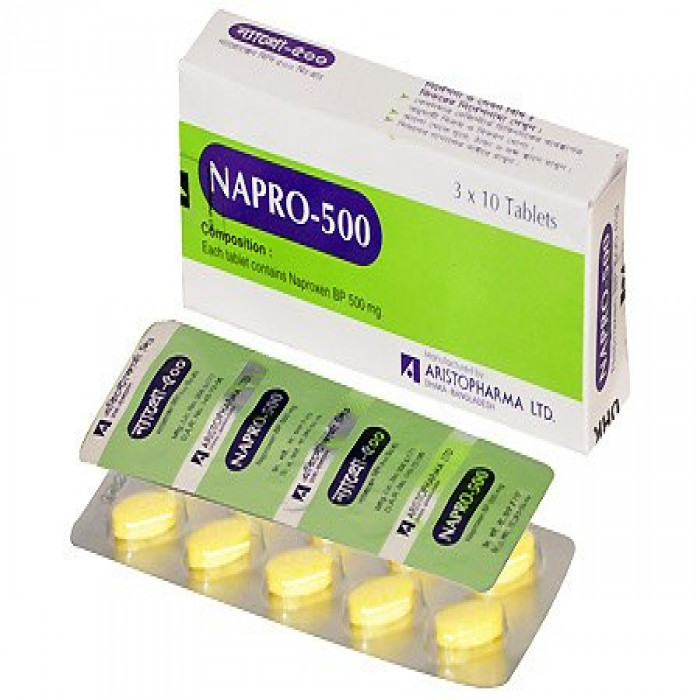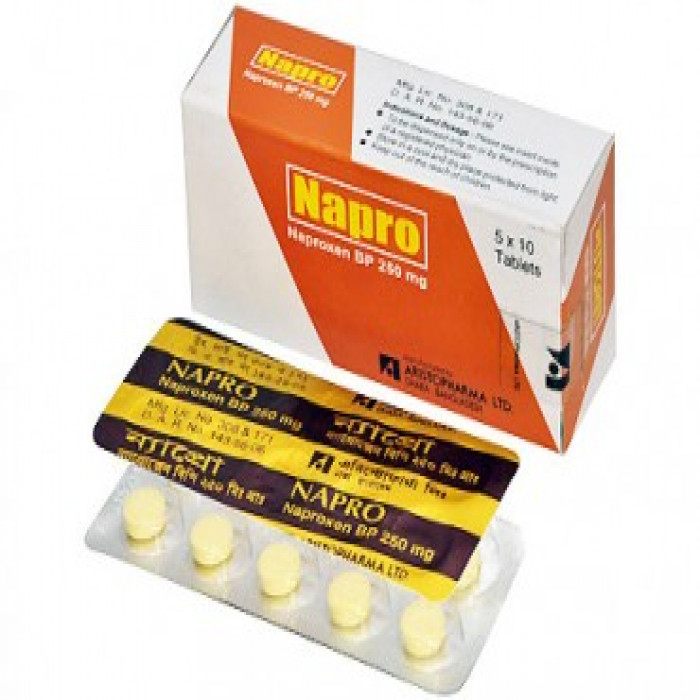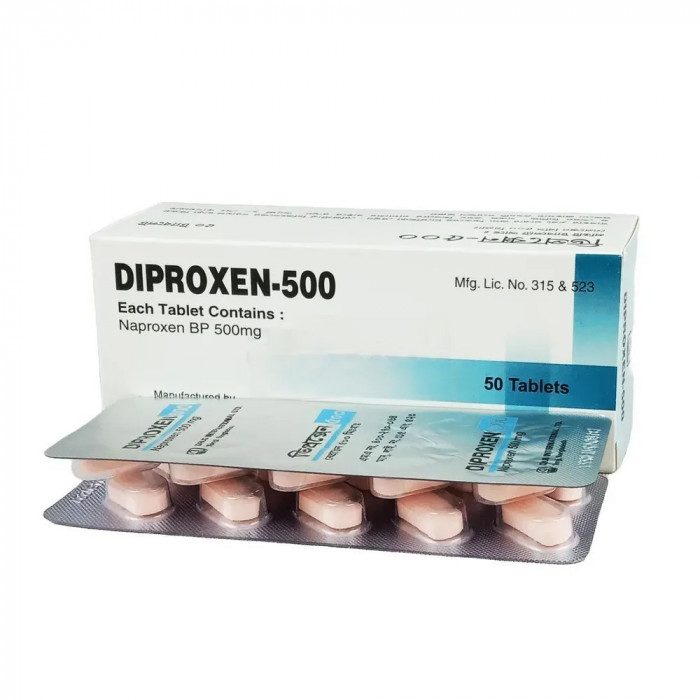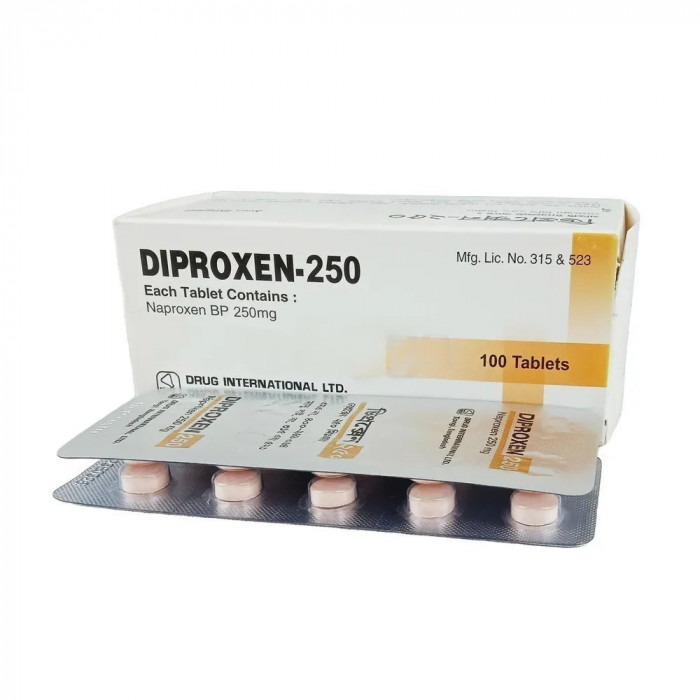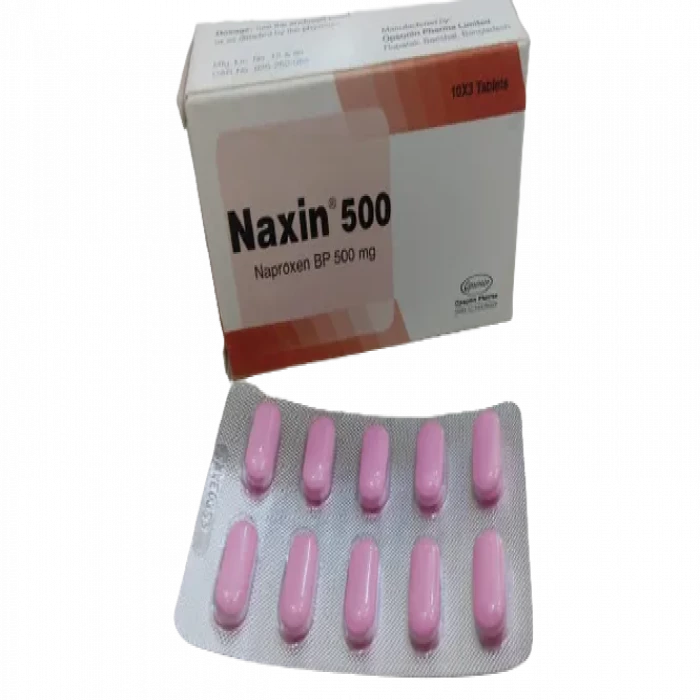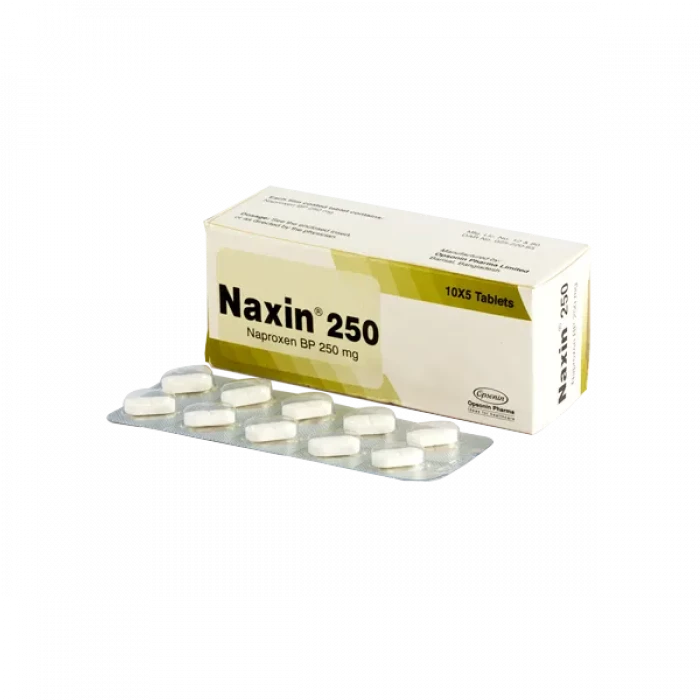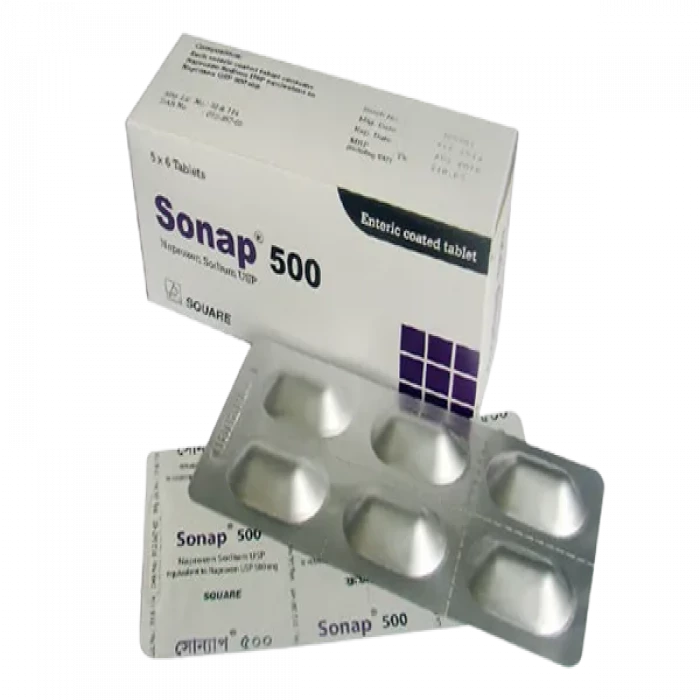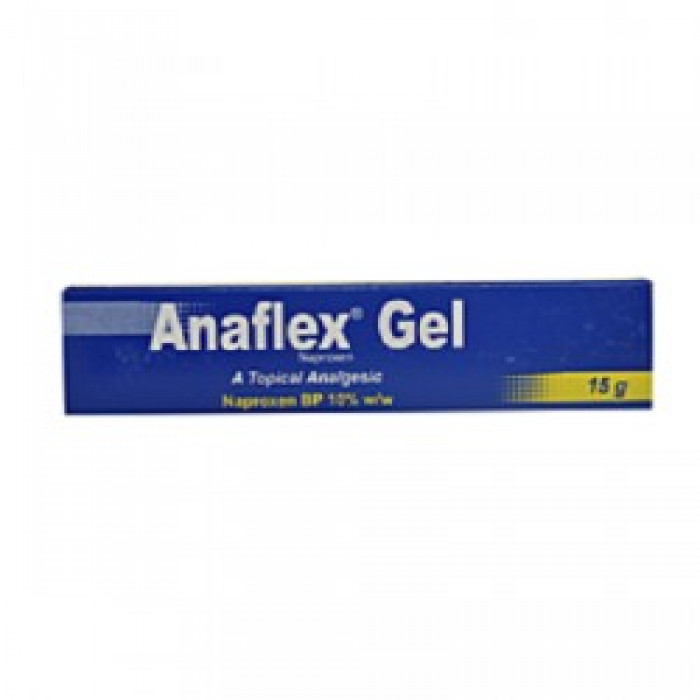
✔ 100% Authentic Product
👁️ Currently Viewing 2758
✅ Description:
Indication
Known hypersensitivity to any component of this tablet or substituted benzimidazoles. History of asthmay urticaria or other allergic-type reactions after taking aspirin or other NSAIDs. Use during the peri-operative period in the setting of coronary artery bypass graft (CABG) surgery.
Pharmacology
Naproxen is a non-steroidal anti-inflammatory drug (NSAID) with anti-inflammatory, analgesic & antipyretic properties. It is rapidly absorbed from the gastrointestinal tract and achieves 95% bioavailability.
Dosage and Administration
Adult: Anaflex® Tablet For rheumatoid arthritis, osteoarthritis, ankylosing spondylitis: The usual dose of Anaflex® is 500 mg to 1 g per day taken in two divided doses at 12-hour intervals or as a single administration of Anaflex® 500 mg or Anaflex® SR 500 mg once daily (morning or evening) after meals.
For acute gout: The initial dose of Anaflex® is 750 mg, and then 250mg every eight hours until the attack subsides. For analgesia and acute musculoskeletal disorders: The initial dose of Anaflex® is 500 mg, and then 250 mg at 6-8 hour intervals as needed with a maximum 1250 mg daily.
For dysmennorhoea: The usual dose of Anaflex® is 500 mg should be given initially, followed by 250mg at 6-8 hour intervals for up to 5 days.
For migraine: The usual dose of Anaflex® is 500 mg should be given initially, then 500mg at least 30 minutes after the initial dose.
Children over 5 years: In juvenile arthritis (children over 5 years): The usual dosage of Anaflex® is 10 mg/kg/day taken in two doses at 12-hour intervals is recommended. Anaflex® Gel is to be applied 2-6 times a day as required and is not recommended for use in children.
Interaction
- ACE inhibitors: diminish the antihypertensive effect of ACE inhibitors.
- Antacids & Sucralfate: delay the absorption of Naproxen.
- Aspirin: increase adverse effects.
- Diuretics: reduce the natriuretic effect of Furosemide and Thiazides.
- Methotrexate: enhance the toxicity of Methotrexate.
- Warfarin: increase the risk of GI bleeding.
- Selective Serotonin Reuptake Inhibitors (SSRI): increase the risk of GI bleeding.
Contraindications
C Naproxen is contraindicated in patients’ active peptic ulceration, hypersensitivity to naproxen or naproxen sodium formulations, aspirin/other NSAIDs. Ontraindications.
Side Effects
Gastro-intestinal: Nausea, vomiting, pain, occasionally bleeding and ulceration and colitis. Only for the use of Medical Professionals
Dermatological: Skin rashes, urticaria, angio-oedema; rarely anaphylactic reactions and eosinophilic pneumonitis.
Haematological: Thrombocytopenia, granulocytopenia, including agranulocytosis, aplastic anaemia.
Other: Tinnitus, hearing impairment, vertigo, mild peripheral oedema (patients with compromised cardiac function may be at a higher risk on naproxen), rarely jaundice, fatal hepatitis, nephropathy, haematuria, visual disturbances, vasuculitis, aseptic meningitis and ulcerative stomatitis.
Pregnancy & Lactation
The safety of naproxen administration during pregnancy and for use in nursing mother has not been established. Therefore, the possible hazards should be weighed against the potential benefits.
Pregnancy & Warning
Naproxen should be used with care in patients with a history of GI disease, asthma, or allergic disease, impaired renal and hepatic function. Naproxen decreases platelet aggregation and prolongs bleeding time.
Therapeutic Class
Drugs for Osteoarthritis, Drugs used for Rheumatoid Arthritis, Non-steroidal Anti-inflammatory Drugs (NSAIDs).
Storage Condition
Protect from light, store bellow 30°C and keep away from children.
⚠️Disclaimer:
At ePharma, we’re committed to providing accurate and accessible health information. However, all content is intended for informational purposes only and should not replace medical advice from a qualified physician. Please consult your healthcare provider for personalized guidance. We aim to support, not substitute, the doctor-patient relationship.




